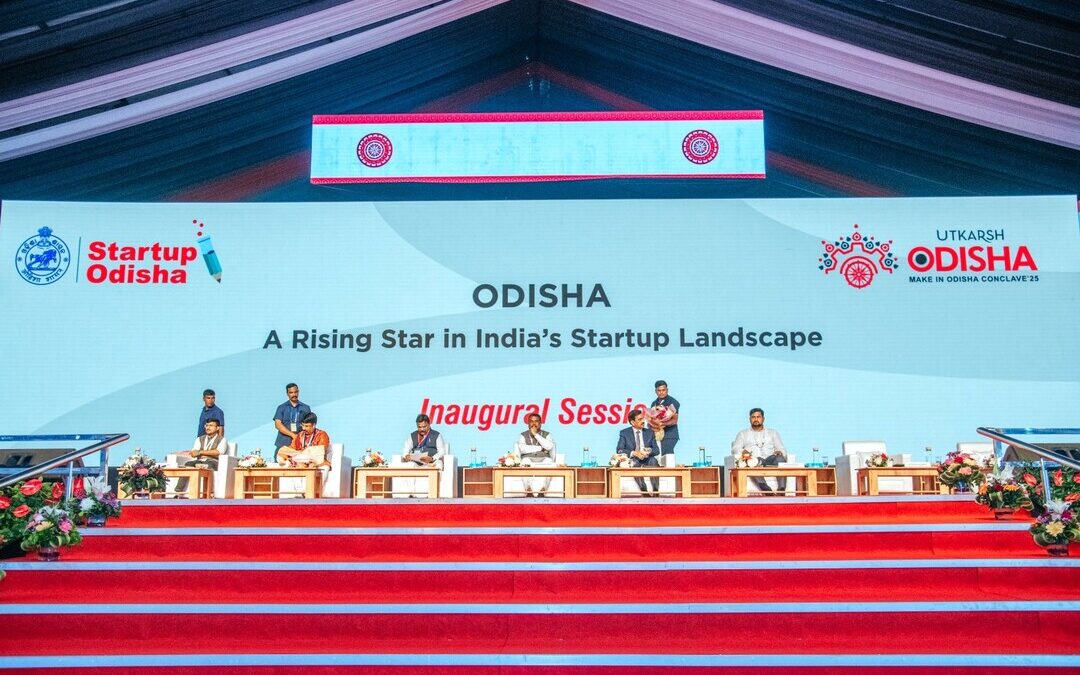Odisha’s Green Economy Push Could Create 1M Jobs, Boost GDP by 23% by 2030
Odisha’s green economy push could create 1 million jobs, attract ₹3.5 lakh crore investment, and boost GDP by 23% by 2030, says CEEW study.
Odisha could generate as many as 1 million new jobs and attract investments worth ₹3.5 lakh crore ($42 billion) by 2030 through a strategic transition to a green economy, according to a new study released by the Council on Energy, Environment and Water.
The study unveiled at the ‘Utkarsh Odisha – Make in Odisha Conclave’ in Bhubaneswar highlights the economic potential of a greener industrial landscape and estimates a 23 percent boost to the state’s gross domestic product from sustainable initiatives.
It outlines the economic benefits of 28 green value chains spanning energy transition, circular economy and bio-economy sectors. Investments in these areas, including floating solar power, seaweed cultivation, and e-waste recycling, could contribute ₹2 lakh crore to the state’s economy.
Sustainability at the Forefront
Among the major focus areas, the energy transition sector — comprising solar, wind, electric vehicle manufacturing, and battery storage — alone could attract ₹1.5 lakh crore in investments while generating 400,000 new jobs.
Additionally, bioeconomy and nature-based solutions, including agroforestry, mangrove restoration and sustainable packaging, could add another 500,000 jobs and contribute ₹26,000 crore to Odisha’s economy.
Sustainable tourism, leveraging the state’s rich cultural and ecological heritage, also presents a significant opportunity for inclusive growth.
“India’s transition to a green economy will be shaped by the vision and actions of its states, and Odisha is leading the charge,” said Arunabha Ghosh, CEO of CEEW. “The state’s commitment to climate action and bold policy innovations position it as a model for integrating economic growth with climate resilience.”
Key Driver of Jobs and Investment
Promoting a circular economy in Odisha — through initiatives such as lithium-ion battery recycling, plastic waste management, and e-waste processing — could generate over 30,000 jobs and unlock ₹10,000 crore in market opportunities.
The study suggests that these high-value industries address environmental concerns and align with global sustainability goals.
“The study broadens our understanding of emerging green opportunities that policymakers, economists, and industry leaders must leverage,” said Abhishek Jain, director, Green Economy and Impact Innovations at CEEW.
“By adopting a whole-of-government approach, Odisha can scale up these green sectors and create new markets while ensuring equitable development.”
Green Odisha Initiative
The CEEW study recommends launching the Green Odisha Initiative to integrate policies, investments, and actions across sectors. The initiative proposes a Common Results Framework to set department-specific targets, promote targeted interventions such as seaweed farming along coastal regions and encourage urban waste recycling in industrial zones.
The plan also envisions skill-building programs to prepare the state’s workforce for green jobs and partnerships with private enterprises to drive investment into emerging sectors like green hydrogen and battery recycling.
Odisha has already secured global climate funding and pioneered climate budgeting, and the study suggests that its leadership in green industries could serve as a blueprint for other Indian states.
As India prepares for the upcoming Union Budget on February 1, Odisha’s example emphasizes the potential for aligning economic growth with sustainability at a national level.
A Transformative Vision for Odisha’s Economy
The report stresses that value chains within the circular economy and bioeconomy beyond renewable energy offer significantly higher job-to-investment ratios.
The circular economy could generate 12 more full-time equivalent jobs per crore of investment while bioeconomy nine.
As the state embarks on this ambitious path, its policies and investments could redefine India’s economic growth trajectory while fostering environmental stewardship and equitable prosperity.

